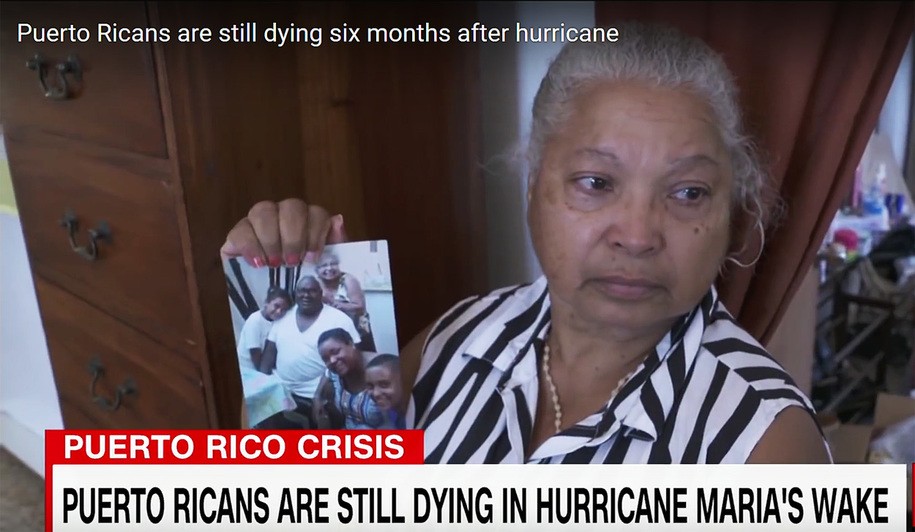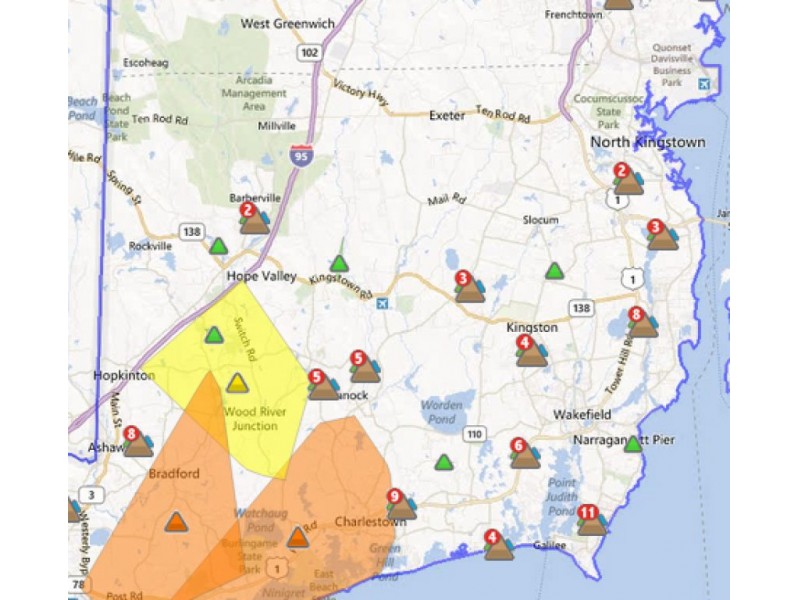By TIM FAULKNER/ecoRI News staff
 Rhode Island seems to have a thing
against trees.
Rhode Island seems to have a thing
against trees.
Although preserving trees is
considered one of the most effective methods for sequestering carbon and
mitigating climate change, state laws and incentives continue to favor cutting
them down.
As a result, trees are being clear-cut in Rhode Island to build
an office park, a casino and large solar energy farms.
Now the state's Renewable Energy Standard (RES) may
increase the loss of trees. The RES is annual increase in the amount of
renewable energy that flows into electric sockets.
The program was created by
the General Assembly in 2004 and is managed by National Grid. Eligible
renewable-energy power is bought from specific types of projects that operate
across New England and New York.
However, the biggest contributor to
the RES portfolio is not wind or solar, but woody-biomass power plants in New
Hampshire and Maine. Woody biomass is principally the burning of wood and wood
residue from logging to create electricity. But reports show
it’s unlikely that planting new trees keeps up with the sequestered carbon
dioxide lost to cutting, transporting and burning existing trees.
A new bill in the General Assembly (S2652) adds biomass
to the list of eligible energy sources that qualify for net metering. Net
metering allows Rhode Island-based residential and commercial renewable-energy
projects to connect to the electric grid and get compensated for their
electricity. The bill expands the list of eligible power generators to include
woody biomass.
Jerry Elmer, senior attorney for the
Conservation Law Foundation (CLF), sent an e-mail to the environmental
community warning that the bill allows “all manner of dirty biomass fuels to qualify
for net metering.”
Elmer noted that the bill is
sponsored by Sen. Susan Sosnowski, D-South Kingstown, Sen. Louis DiPalma,
D-Middletown, and Sen. Joshua Miller, D-Cranston. All are considered allies of
the environmental movement, but they may not be aware of the harmful
consequence of woody biomass, he said.
Elmer said the bill “is clearly the
work of one or more companies that would directly benefit from this change.” He
intends to alert the sponsors of the risks and urged the environmental community
to oppose the bill at a Senate hearing scheduled
for March 28.
Other key environmental bills are
also scheduled to be heard by the Senate Committee on the Environment and
Agriculture:
Carbon tax S2188: Establishes a state and
regional fee on carbon fuels that enter the state. The Energize Rhode Island:
Clean Energy Investment and Carbon Pricing Act is in its third year.
Adaptation S2355: Creates the Coastal Adaptation Trust
Fund to award grants for fortifying public infrastructure against climate
change. The fund would be overseen by the Rhode Island Department of
Environmental Management and funded through public and private grants and money
allocated by the General Assembly.
Offshore drilling S2116: Designed to deter oil and gas
drilling off the coast of Rhode Island. The bills is intended to mute federal
plans to open the outer continental shelf to offshore exploration and
drilling. S2360 is a resolution stating that the
state Senate opposes the offshore drilling proposal.
Carbon capture S2356: Creates a study commission to
explore the economic benefits of adopting carbon-capture technologies in Rhode
Island.
Fossil-fuel power plants S2508 and S2054: Address the proposed Clear River
Energy Center in Burrillville and any future fossil-fuel power plant proposals.
S2508 requires developers to build renewable-energy facilities in addition to
their fossil-fuel projects. S2054 requires the state Energy Facilities Siting
Board (EFSB) to deny any proposed power plant that interferes with state
greenhouse-gas reduction goals.
The state Office of Energy Resource
recently released a supplemental advisory opinion declaring
that the 1,000-megawatt natural-gas/diesel power plant proposed for the woods
of Burrillville wouldn't prevent the state from achieving its greenhouse-gas
reduction goals.
The EFSB is scheduled to host the final phase of hearings for
the proposed Clear River Energy Center on April 11 at 9:30 a.m. at 89 Jefferson
Blvd. in Warwick. The hearings will run intermittently through the summer.
The
public meetings are structured for questioning and cross examination of expert
witnesses who provided written testimony on behalf of state agencies, the
developer, and opponents of the power plant, such as CLF and the town of
Burrillville. Public comments will not be permitted. The hearings will be
broadcast live online.
Provided there are no further
delays, a ruling from the EFSB isn't likely until early fall.
Change of plans
The Scituate Town Council planned to vote on rescinding its objection to the
Burrillville power plant on March 15, but public opposition prompted the
council to table the idea while it studies the new resolution.
Thirty-one cities and towns in
Rhode Island, two in Massachusetts and one in Connecticut passed resolutions
opposing the Clear River Energy Center.
Scituate approved its resolution in
2016 after Election Day but before a majority of new members, known as
the Independent Men, were
seated on the seven-member council. The group of registered Independents,
sworn in in January 2017, are council president John Mahoney, vice president
Mike Payette, and members Scott Amaral and Nick Izzi.
In the new resolution, the
Independent Men referred to the vote to oppose the power plant as a “lame duck
decision” and wanted to rescind it out of fear that the town would be sued by
Invenergy for opposing the 1,000-megawatt project.
No date has been set to revisit the
resolution.














